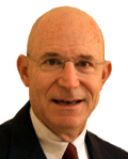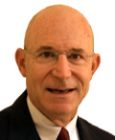Neuroscience
3 Reasons Why Brain Aging Might Soon Be Reversible
The promise of regenerative medicine.
Posted December 12, 2021 Reviewed by Tyler Woods
Key points
- Advances in regenerative medicine may be able to add decades to our lives.
- The upper limit for human lifespan extension is thought to be around 122 years, the current record for human longevity.
- The "120 year limit" for lifespan is primarily set by the inability of brain tissue to regenerate and the infeasibility of brain transplants.
- But three new strategies for rejuvenating aging human brains may be able to work around the unique challenges of reversing aging in the brain.
Last week I asked my brother Bill, a molecular biologist and a founder of the field of regenerative medicine, whether radical life extension, out to 120 years or beyond, might be possible.
Bill responded that extrapolations of current regenerative medicine techniques (e.g. stem cell therapies, tissue engineering, and molecular signals to slow or reverse cell aging and death) might someday let many of us reach 120—the current upper limit on human lifespan—but that pushing beyond that limit would be a big challenge because of the extreme difficulty of getting our brains to reverse the inexorable neuronal deterioration that accompanies aging.
In other words, stem cell implants might rejuvenate old hearts, or organs grown in the lab or host animals such as pigs could replace worn-out lungs, livers, and kidneys, but many scientists think that rejuvenating or replacing the brain (or parts of it) may never be possible, because of the brain’s unique complexity and inability to repair itself the way, for example, damaged skin can.
But a few audacious neuroscientists are exploring ways to not only slow but actually reverse the aging of the brain, raising the prospect that some of us might celebrate our 120th birthdays with all of our mental faculties intact.
This exciting work falls into roughly three categories: stopping aging brains from suppressing themselves, reactivating neuron growth, and injecting new cells to replace lost neurons.
Stop the Brain From Suppressing Itself
Dr. Peter Walter’s lab at UC San Francisco discovered that brain tissue routinely senses when some neurons are in trouble, such as with viral infections, and through a mechanism called the Integrative Stress Response (ISR), actively suppress the activity (protein synthesis) of ailing neurons to prevent them from further disrupting brain function. As we age, and brain neurons deteriorate, for instance with inflammation, ISR activity increases, suppressing more and more neural function. Walter and collaborator, Dr. Susanna Rosi recently found that inhibiting ISR activity (that itself inhibits brain function), can reverse cognitive decline in old mice astonishingly fast. For example, old mice have a lot harder time learning to navigate mazes than young mice, but when the UC San Francisco team treated older mice with an ISR inhibitor, within just a few days, the old mice performed just as well as youthful mice on a maze task.
This nearly immediate improvement in cognitive ability implies that age-related mental decline is not entirely due to neuron death or other permanent losses, but in part to active, reversible metabolic processes. The UC San Francisco teams believe treatments such as ISR inhibitors might someday restore functions lost with not only aging but stroke and trauma.
Reactivate Neuron Growth and Development
Dr. Saul Villeda (also at UC San Francisco) has recently built on the discovery that adult brains—even aged ones—actually do routinely grow new neurons (a process called neurogenesis) in a few parts of the brain, such as the hippocampus. In exploring why some parts of the brain regenerate but not others, Dr. Villeda’s team discovered a range of signaling molecules, such as compounds found in youthful blood that can “fool” old neurons into spawning new ones—even in brain regions that normally lack adult neurogenesis. These molecules also help newly formed adult cells to develop dendrites and axons. Older animals treated with such rejuvenating molecules did indeed show improvements in cognitive function.
Injecting New Cells to Restore of Replace Lost Neurons
The research in Dr. Walter’s lab suggests that brain aging might be slowed or reversed by tricking brain tissue into performing unnatural, rejuvenating acts. But in case molecular signaling magic can’t repair or replace all age-damaged brain tissue, some researchers are investigating ways to restore or replace lost brain tissue with new tissue from outside the brain. Much of this work, for example at the Mayo Clinic Center for Regenerative Medicine, focuses on injecting stem cells (embryo-like cells that can divide and differentiate into multiple types of cells) that cause new blood vessels to grow in the brain, nourishing and invigorating old neurons, and possibly helping to grow new ones.
Scientists at Zhejiang University School of Medicine in China, are also making progress injecting stem cells and getting those cells to migrate to damaged regions and to start differentiating into neurons that replace those lost to traumatic brain injury. It's not yet clear how much lost function this new technique can restore, but neuroscientists are hopeful it may one day help lessen cognitive and motor deficits in neurodegenerative diseases such as Dementia and Parkinson's disease.
Towards Longer Life-Spans
Although it’s unclear when each of the three strategies for slowing or reversing brain aging will start repairing and rejuvenating human brains, I believe that at least some of you reading this article, as a result of these techniques and other advances in regenerative medicine, will be able to re-read the article, and fully appreciate it, a hundred or so years from now.
And when you do revisit my predictions in the next century, your razor-sharp mind will clearly remember. . .I told you so.
LinkedIn image: Rido/Shutterstock. Facebook image: Harbucks/Shutterstock
References
https://www.frontiersin.org/articles/10.3389/fncel.2019.00301/full
https://www.karger.com/Article/Fulltext/447646
https://elifesciences.org/articles/62048
https://www.ucsf.edu/news/2020/12/419201/drug-reverses-age-related-ment…
https://scitechdaily.com/microbes-turn-back-the-clock-new-research-disc…
https://www.inverse.com/mind-body/cognitive-decline-can-be-reversed-in-…
https://www.ncbi.nlm.nih.gov/pmc/articles/PMC4664309/
https://www.sciencedirect.com/science/article/pii/B9780128144053000230
https://www.simonsfoundation.org/event/can-aging-be-reversed-in-the-bra…
https://villedalab.ucsf.edu/research-villeda-lab-focuses-four-rejuvenat…




